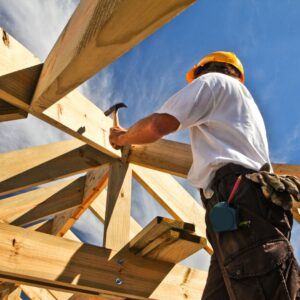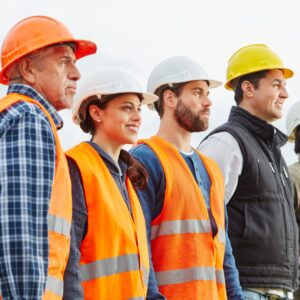Sustainability in modern construction is not just a trend, but an urgent necessity to address current environmental, social, and economic challenges. As the global population continues to grow, urbanization increases, and the demand for natural resources intensifies, the construction industry plays a key role in creating sustainable solutions that respect the environment, benefit communities, and are economically viable. Below are the main reasons why sustainability is essential in modern construction:
Reduction of Environmental Impact
Traditional construction consumes vast amounts of natural resources and produces a considerable amount of waste. However, by incorporating sustainability principles, this impact can be significantly reduced. Sustainable practices include:- Efficient use of resources: Selecting recycled, recyclable, or low-impact materials such as bamboo, recycled concrete, or integrated solar panels.
- Energy efficiency: Designing buildings that consume less energy by using high-quality insulation, double-glazed windows, and low-consumption heating and cooling systems.
- Waste management: Implementing waste reduction, recycling, and reuse strategies throughout the project lifecycle.
Energy Efficiency and Long-Term Savings
Sustainable buildings are designed to consume less energy at all stages of their lifecycle. This includes not only construction but also the use and maintenance of the building. Some strategies include:- Use of renewable energy: Incorporating solar panels, wind turbines, and geothermal energy collection systems.
- Passive design: Maximizing natural light, cross-ventilation, and efficient insulation to reduce the need for heating and air conditioning systems.
- Automation and smart control: Energy management systems that optimize consumption based on the building’s needs, significantly reducing energy expenditure.
Reduction of Operational Costs
Although sustainable construction may require a higher initial investment, the long-term benefits are significant:- Lower energy consumption: Sustainable buildings generally have lower energy demands, resulting in lower energy bills over time.
- Reduced maintenance: Sustainable materials are more durable and resilient, which reduces maintenance and repair costs in the long term.
- Tax incentives: Many governments offer subsidies, tax discounts, and benefits for sustainable projects, which can offset the additional construction costs.
Improvement of Health and Well-being
Sustainable construction focuses not only on energy efficiency or the use of recycled materials but also on creating healthy spaces for occupants:- Indoor air quality: Using materials low in volatile organic compounds (VOCs) that improve indoor air quality and reduce exposure to harmful chemicals.
- Natural light and ventilation: A design that maximizes natural light and enhances ventilation reduces dependence on artificial lighting and climate control systems, contributing to a healthier environment.
- Connection with nature: Biophilic design, which integrates natural elements like gardens, green spaces, or outdoor views, has been shown to have physical and psychological benefits for inhabitants.
Compliance with Regulations and Environmental Certifications
Construction regulations worldwide are increasingly focusing on sustainability, making green practices essential for developers and builders. Environmental certifications like LEED (Leadership in Energy and Environmental Design) or BREEAM (Building Research Establishment Environmental Assessment Method) are internationally recognized and provide a framework for sustainable construction. Obtaining these certifications can:- Increase the resale value of the property.
- Enhance the reputation and image of the construction company.
- Ensure compliance with local or international regulations, avoiding fines or penalties.
Social and Corporate Responsibility
Sustainability in construction not only refers to the environment but also to social responsibility. Builders and developers who adopt sustainable practices are making significant contributions to the community and the well-being of people. Ways to achieve this include:- Development of affordable, quality housing that reduces inequalities in access to housing.
- Creation of green jobs that foster sustainable employment in both construction and building management.
- Reduction of impact on local communities, ensuring that projects do not negatively affect the environment and providing a healthy and pleasant living space.
Increase in Project Value
Sustainable projects tend to have higher market value, as consumers are increasingly aware of environmental impact and prefer to purchase properties that promote energy efficiency and respect for the environment. Additionally:- Sustainable properties have growing demand in the real estate market, which can result in higher prices and greater occupancy rates.
- Companies that adopt sustainable practices position themselves as leaders in environmental responsibility and are more attractive to both investors and environmentally conscious clients.
Adaptation to Climate Change
Sustainable construction also places a strong emphasis on adapting to climate change. This includes designing and building structures that are more resilient to extreme weather events, such as storms, heatwaves, or flooding, by:- Using materials and techniques resistant to severe climates.
- Green infrastructure, such as rainwater drainage systems that manage rainwater and reduce flood risks.
- Designing resilient buildings that withstand wear and tear caused by climate change and minimize their impact on the environment.
Encouragement of Innovation and Technological Development
Sustainable construction drives technological innovation and research into new techniques and materials that improve building efficiency and environmental impact. This includes:- New eco-friendly materials such as carbon-capturing concrete or solar paints.
- Smart building management systems that use sensors and IoT (Internet of Things) technology to control energy consumption and optimize resource use.
Conclusion
Sustainability in modern construction is crucial not only for reducing negative environmental impacts but also for creating healthy and efficient spaces, generating economic value, and contributing to social well-being. By adopting sustainable practices, builders are not only responding to current market demands but also preparing for future challenges, ensuring that their projects are profitable, responsible, and resilient over time.




